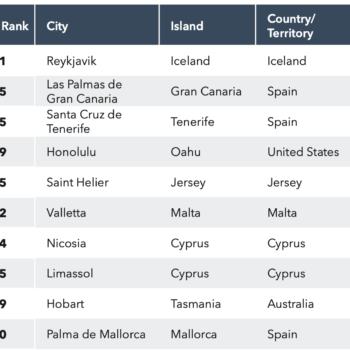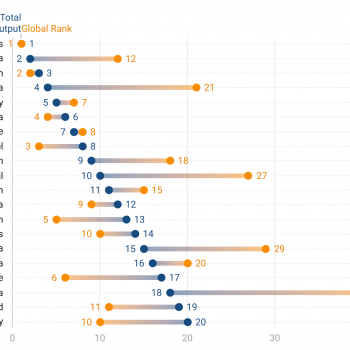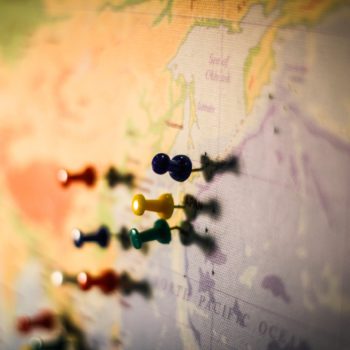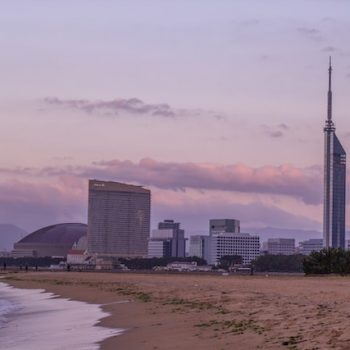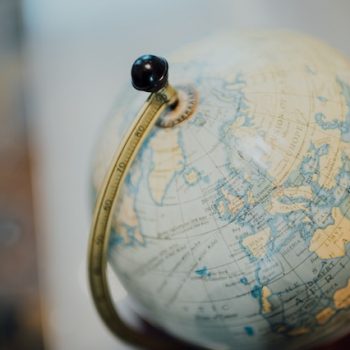
Startup ecosystems can be found in a wide range of locations, and the number of such hubs is increasing faster than ever before. We are always trying to keep readers updated on the newest trends, and this time we present the top-rated startup ecosystem countries for 2019.
All data was gathered from the StartupBlink’s Ecosystem Ranking Report which ranks more than 1000 cities and 100 countries all around the globe. To generate this ranking, special algorithms take into account thousands of data points, and based on this information, provide a quantity score (number of Startups, Coworking spaces, Accelerators and Global Influencers), quality score (monthly visits, authority, customer base, the number of unicorns-startups valued over $ 1 billion, and other factors), business score (factors that determine how easy it is to do business in a given location, the technological infrastructure, bureaucracy, red tape, and others) and total score (sum of quantity, quality and business environment). These cities generally have startup-friendly policies and are convenient for doing business.
While collecting and analyzing the data for the Ecosystem Ranking Report, we noticed some interesting patterns that are worth to be mentioned.
Firstly, we observed that the first 3 places are taken by English speaking countries, including the USA, UK, and Canada. This indicates not only how powerful the startup ecosystems in these countries are, but also shows a language particularity. English has been the language of business for years now, and successful startups are focusing on the global market. In all of the top 3 countries, English is the native language and the countries themselves receive a boost in technology and economics, as well as access to the world’s biggest consumer markets. This strong link between the English language and the success of a startup ecosystem should be taken into consideration.
Another surprising insight is that relatively tiny countries (less than 10 million inhabitants) are doing well in placing themselves amongst global leaders. Despite a smaller population, countries such as Israel (4th), Sweden (7th), Denmark (16th), Switzerland (8th), Singapore (21th), Estonia (13th), and Finland (12th) are all in the top 20. This shows that hubs can be successful even in relatively small nations.
Also, based on our rankings, countries tend to create and distribute hubs in multiple cities instead of having only one active city. This way people working with startups have an opportunity to operate in their homeland without the necessity of moving to another national hub or even another country. Some countries, like the USA (with 18 cities in top 50 cities list) or Canada (with 3 cities in top 50 cities list), are doing great in this area, while other top-ranked countries, like the UK (ranked 2nd globally) only has one city in the top 50, revealing the importance of London in the UK startup ecosystem.
Other things that intrigued us were the massive gaps between regional leaders around the world. The biggest gap is between the Americas. The data collected shows the huge difference between USA and Canada (1st and 3rd) compared to leaders in Chile and Mexico (30th and 32nd); the same happens in the Middle East, where Israel is ranked 4th and its closest followers, the UAE and Egypt, rank 40th and 60th.
In this article, we will discuss top-ranked countries in 2018 from each of these regions.
North American Startup Ecosystems
Latin American Startup Ecosystems
European Startup Ecosystems
Asian Startup Ecosystems
African Startup Ecosystems
Top ranked North American Startup Ecosystems
The United States is taking the lead in the Global Startup Ecosystem, and together with Canada is sharing a 1st and 3rd place in our ranking. Despite the fact that these two countries have relatively high costs of living, they provide excellent conditions for business development. North America can be considered the most successful region among startup ecosystems.
USA – Without any doubt, the USA is the leader of the Global Startup Ecosystem and its position is so well established that it will probably remain there for the near future. The gap between 1st and 2nd place (the UK) is huge, with the USA boasting almost 7 times more startups and nearly 5 times the average startup quality. One of the reasons why the United States has no rivals in this ranking is Silicon Valley, a global center for high technology, innovation, and social media that is home for 39 of world’s largest high-tech corporations, along with thousands of startup companies. It is important to point out that other US cities are by no means less important, and 8 of them (New York, Los Angeles, Boston, Chicago, Seattle, and others) are featured in the top 20 startup cities.
Canada – The third country in the ranking, Canada does extremely well and will likely rise even higher soon. Unlike the UK, its 3 major hubs are located in different places: Vancouver, Toronto, and Montreal. Thus, many more people can access the resources that such spaces offer. Many VCs predict that Canada will become the next startup hot spot since a thriving startup arena thrives on new talent, and this country has a huge advantage that its neighbor lacks. Canada does not have an overly strict immigration policy, and its startup scene is open for everyone.
Top ranked Latin American Startup Ecosystems
On the opposite hemisphere, the Latin American startup ecosystem is just starting to transform the way people look at it. Slowly moving towards the global market, newly coined South American startups are already making a positive impact on local communities and businesses. The main focus of startups in this region is to tackle problems of education and agriculture that have been impeding prosperity for generations.
The most common issue facing the entire region is a lack of ecosystems and collaboration in general. The common barrier is a lack of foreign language skills that hinders startups who want to access markets overseas. This could be part of the reason why the highest ranking Latin American country (Chile) is only ranked at 30th place, followed by Mexico (32nd), Colombia (34th), Brazil (37th), and Argentina (44th).
Nevertheless, startups usually receive substantial government assistance to help them catch up with their northern neighbors. As local authorities are developing policies that would attract even more VC investors and Angels, universities are promoting programs to support startup ecosystems. Most active Latin America’s accelerators, like NXTP Labs, play a vital role in helping startups catch new opportunities and showcase their global potential.
Chile – One of the most prosperous economies in Latin America, Chile is 30th in our ranking. Despite its geographical isolation, Chile is exceeding all expectations in building a startup ecosystem. Guided by the most popular government-backed accelerator worldwide, Start-up Chile, it aims to establish an entrepreneurial scene for innovation-thirsty Chileans. While Start-up Chile functions entirely in English, participants are invited to form their business in Chile and are encouraged to think globally. Since 2010, this program has mentored over 1600 startups, including Spectro and LaPlataforma.
Mexico –Taking 32nd place, Mexico is the second Latin American country in the startup ecosystem ranking and home of unicorns like Kio Networks and Softekk. Its geographical location is a great advantage; the proximity to the United States, startup ecosystem giant, eases collaboration between two continents. Programs like Casa México also help build bridges across two continents. With a population of 127 million, Mexico has one of the biggest consumer markets and an outstanding talent pool of tech enthusiasts.
Colombia – ranked 34th, Colombia is rising from its troubled past as an attractive country for tourists and business people. Most entrepreneurial activity happens in the capital city of Bogota (52) or in nearby Medellin (107). Due to a comparably low cost of living, many digital nomads and expats settle here. Colombia has been providing high amounts of resources to deal with the limitations of its developing economy by collaborating with public and private entities at both national and international levels. Some of the most popular accelerators and incubators are Wayra Colombia, Ruta N, and INNpulsa.
Brazil – 37th on the list is Brazil, with over 200 million inhabitants, many of whom are striving for the change. Taking into consideration the size and potential of the country it could easily become a global leader, but for now, the country has to improve the quality and number of unicorns. While Brazil boasts many accelerators, including Startup Farm, Wave Accelerator, and Seed, the startup ecosystem suffers from a bureaucracy that both impedes entrepreneurs in developing their business in Brazil and fails to attract enough investments to encourage more people to form a startup. The highest ranking city in Brazil is Sao Paulo (23). Being aware of its potential, tech giant Google has opened a Google Campus where entrepreneurs can gather to discuss their ideas or join one of many events taking place there.
Argentina – 44th on our ranking is Argentina, and the center of the Argentinian startup ecosystem is in the capital city. With over 3M inhabitants, 90 % of all startup activity in the country happens in Buenos Aires (48). Until 2017, the Argentinian startup ecosystem had no or very little support from authorities, and the country has been facing both an economic crisis and inflation for some time. Luckily, the local government presented a new policy last year allowing new businesses to open in 24 hours instead of 24 days, as it was before. Also, their latest addition is a global incubator, IncuBAte, that could be another center for entrepreneurship in the capital city, along with AreaTres and Startup Buenos Aires.
Top Ranked European Startup Ecosystems
Comprised of 44 countries, Europe bursts with diversity and innovation when it comes to local and global startups. A major trade center in the past is now turning into an active startup hub that attracts VC, business Angels, and accelerators from around the globe to provide seed capital and mentorship.
Regardless of a promising future on the horizon, the continent is facing a few barriers that prevent access to the bigger markets. These limitations often include language differences and legal barriers that impede direct business collaboration and force startup ecosystems to function on a mostly local level.
In our report, Europe boasts 18 of the top 30 global startup countries or 60% of the top 30. At the very top, one can see the most wealthy countries, including the UK (2nd), Germany (9th), the Nordic region (Sweden at 7th, Denmark at 16th), Switzerland (8th) and France (11th).
UK – The UK is the 2nd country in our ranking, thanks largely to London (ranked 3rd globally for cities) where the majority of accelerators, coworking spaces, and startups are located. For a better understanding of how influential London is for the UK, note that the next city UK city on the list is Manchester at the 51st place! Based on the information in our report, there is a higher tendency of success for more balanced ecosystems, where hubs are evenly distributed around the country instead of taking root in only one city. That is to say, the UK ranking might soon be in danger.
Israel – A powerful pool of talent, an open business culture, and an almost unstoppable tech start-up ecosystem puts Israel in the 4th place in the global country ranking. Regardless of being geographically located in Asia, based on its tech capabilities, we feel Israel fits better within the European startups. Tel Aviv ranks as the 6th global city and is the main hub in the country. Every multinational tech company, including Intel, IBM, Microsoft, Google, Facebook, and Apple, has a headquarters there to assist in building successful startup ecosystems. And not only are corporations motivated to pursue business goals but the Israeli government as well that does an incredible job easing the legal process. For Israel, being small does not necessarily mean a lack of opportunities; instead, they think more globally and try to develop projects that would be highly innovative, creative, and interesting for tech communities overseas. With examples like Waze, Viber, Payoneer, and Wiz, Israel is out in front of any other Middle East country (the UAE is 40th).
Germany – Another high ranking country is Germany, boosted by newly coined startups that address health care, finance, and transportation. The number of VC investing in German tech assets as part of their global investment plan is increasing, and these investors include Naspers, Asian state funds, and SoftBank, all of which are empowering the later-stage funding environment in Germany. Its capital city, Berlin, like the country itself, ranks 7th in our global city rankings and has turned into the biggest startup hub in the EU over recent years. Not by chance are all these successful companies like ResearchGate and Babble, as well as Rocket Internet, a very large incubator, establishing in the capital. Germany‘s startup ecosystem is distributed in other cities too, and 4 of them have placed themselves in the top 100, starting with Munich (41st), Hamburg (61st), Frankfurt (94th) and Cologne (98th).
Sweden – Many funding possibilities, great technological infrastructure, and convenient policies attract startup creators to Sweden. This country takes the leader‘s position in Scandinavia and ranks 6th. It is important to mention that the Swedish government has been extremely supportive of local initiatives and opened specific funding programs to help improve the ecosystem and produce even more auspicious startups. When it comes to famous startups, Stockholm (ranking at 24th) boasts brands like Skype, Spotify, SoundCloud, King, Minecraft, and TrueCaller. The capital city has become a hub for tech, music, and gaming startups, and has the 2nd highest unicorns per capita after Silicon Valley.
Denmark – In 16th place stands Denmark, one of the most digitized and innovative countries in Europe. Thanks to its tax legislation system, more and more startup founders are deciding to establish their businesses there. The main Danish startup hub is in the capital, Copenhagen, where the biggest initiatives are available. Startup Bootcamp with Alex Farcet cannot be left out, as well as Lasse Chore who has facilitated more startup weekend events than anyone else. What about other great ideas and even wiser minds? The list is huge and all the startup events and projects happen not only in the capital but in other 8 Danish cities that all fall into the top 1,000 rankings.
Top ranked Asian Startup ecosystems
When one thinks about technology and startup ecosystems, the very first continent that comes to mind is probably the USA, thanks to Silicon Valley, while Asia remains more of a mystery for most people. However, this continent has shown amazing results in our startup ecosystem ranking.
The startup ecosystem in Asia has seen a powerful growth over the past few years in countries like South Korea (19th), Singapore (ranked 21st), Japan (23th) and China (27th), and together with other Asian countries, the continent has produced around 60 unicorns.
Also, India is now featured in the top 20 country ranking, its growth story goes beyond national borders and could be considered global. India‘s startup ecosystem has been actively collaborating with Japan, Israel, the UK, and China, and has received both internal and external VC and Angel support.
South Korea – home of Samsung, Hyundai Motor, and LG, South Korea stands tall at 19th. Already knowing the potential for growing imperial-size brands that this country has, the startup ecosystem has a lot of potential to flourish. Big companies are their greatest resource for the investments and support needed by slowly emerging startups. South Korea is considered a culturally-closed region, and the deep-rooted entrepreneurial ideas of young people lean toward joining already existing large companies rather than creating startups by themselves. This is a challenge South Korea must overcome.
Singapore – The second Asian country in our ranking is Singapore, ranked 21st. While it shows a comparably lower number of startups than China or Japan, the average quality index is higher. Local government helps fosters entrepreneurship through various funding bodies, including SPRING Startup Enterprise Development, the Early Stage Venture Fund, Technology Incubation, and the Sector-Specific Accelerator programs. Thanks to simplified regulations for VC companies, startups can access the capital easier. Block71, the Singapore Startup Hub founded in 2011, now hosts close to 700 startups, and country‘s startup ecosystem is home for two unicorns: Grab, the ride-hailing app, and social gaming platform Garena.
Japan – Japan ranks 23rd. Startups quantity for a country of its size is relatively low, and scores only one tech unicorn: Mercari. Like most of the Asian countries with deep-rooted job culture, Japanese citizens often find it difficult to orient themselves in the startup world. Japan needs to develop a better infrastructure for startups and inspire youth to take more risks by joining smaller companies or building one themselves. Its capital city, Tokyo, ranks 14th in the world and is Japan’s main hub. Here, unrelated field entrepreneurs and startup creators gather in particular places just for like-minders, like Tokyo‘s Entrepreneur Plaza for AI and Finolab for Fintech.
China – The country with the biggest population in the world is 27th in our ranking. Keeping in mind its demographic situation, market size, and inborn need for innovation and technology, it could definitely take a higher place in the startup ecosystem ranking. The main issue that impedes it from taking over the global market is its focus on local markets. China’s main startup hub is located in Beijing (17), boasting several high profile projects such as WeChat, Didi, and Xiaomi. Most of the country‘s unicorns are located in Beijing.
Top ranked African Startup Ecosystems
Africa is a relatively new participant in a startup ecosystem and bigger achievements are just starting to become visible since the past few years when other regions are enjoying all the advantages that it gives for decades already. Unfortunately, the main difficulty that African startups have to deal with is a lack of funds and investment.
The growth of a healthy startup ecosystem is blocked by several other issues that prevail across most of Africa. Struggling with poor infrastructure, lack of health care, and consistent political challenges, startups find it difficult to function properly or attract the interest of global markets, and therefore Africa must deal with local problems first.
In the global startup ecosystem ranking, 13 African countries are featured in the top 100, with South Africa, Kenya, and Egypt (ranked at 51, 52, 60) as top three for the continent. These countries are definitely pushing the whole continent forward.
South Africa– Takes 51st position in our global startup ecosystem country ranking and is the highest ranking African country. Being Africa‘s most mature startup ecosystem, it boasts a vibrant VC sector that keeps business markets active and encourages entrepreneurial talent. Cape Town, the country‘s capital, ranks 157th on our top startup ecosystem city ranking and has relatively well-developed accelerators, networking spaces, and associations to assist, educate, and unite entrepreneurs. More rapid growth in South Africa is feasible only if the government is willing to play its role by creating global developmental programmes and easing the process of running businesses.
Kenya– Stands at 52nd place on the world‘s country ranking and it is an epicenter of the tech startup scene in East Africa. Its capital, Nairobi, is the only other city in the top 200 (105). Kenya‘s entrepreneurial landscape has seen major improvements over the past few years, as well as an increase in accelerators like iLabAfrica, incubators like Nailab, and innovation hubs like iHub. This revolutionary period started with the introduction of a mobile money system, Mpesa, which easily gained popularity across the continent.
Egypt- spanning the northeast corner of Africa and southwest corner of Asia, Egypt is a bridge between two continents and ranks 60th on our top startup ecosystem country report. Egypt is doing really well in ICT, which requires small investments in the seed stage while larger investment areas like hardware, industrial, and agricultural sectors are still challenging for startups. The Egyptian startup ecosystem needs more governmental support since they are working under a lot of bureaucratic barriers, and some even choose to join informal economies due to unreliably long company registration policies. In this case, VC investors are of a great assistance, and the increase in funding is mostly attributed to the launch of a Cairo-based VS, the 50 million dollar Algebra Ventures, that also supported several other famous Egyptian startups like WUZZUF, Swvl, and Vezeeta.
In this article, we discussed the results of our Startup Ecosystem Rankings Report and highlighted the top countries in the world along with the progress of their ecosystem. If you are passionate about startup ecosystems around the world and want to learn more, we encourage you to download our extensive report that covers 1000 cities and 100 countries, and start discovering!
